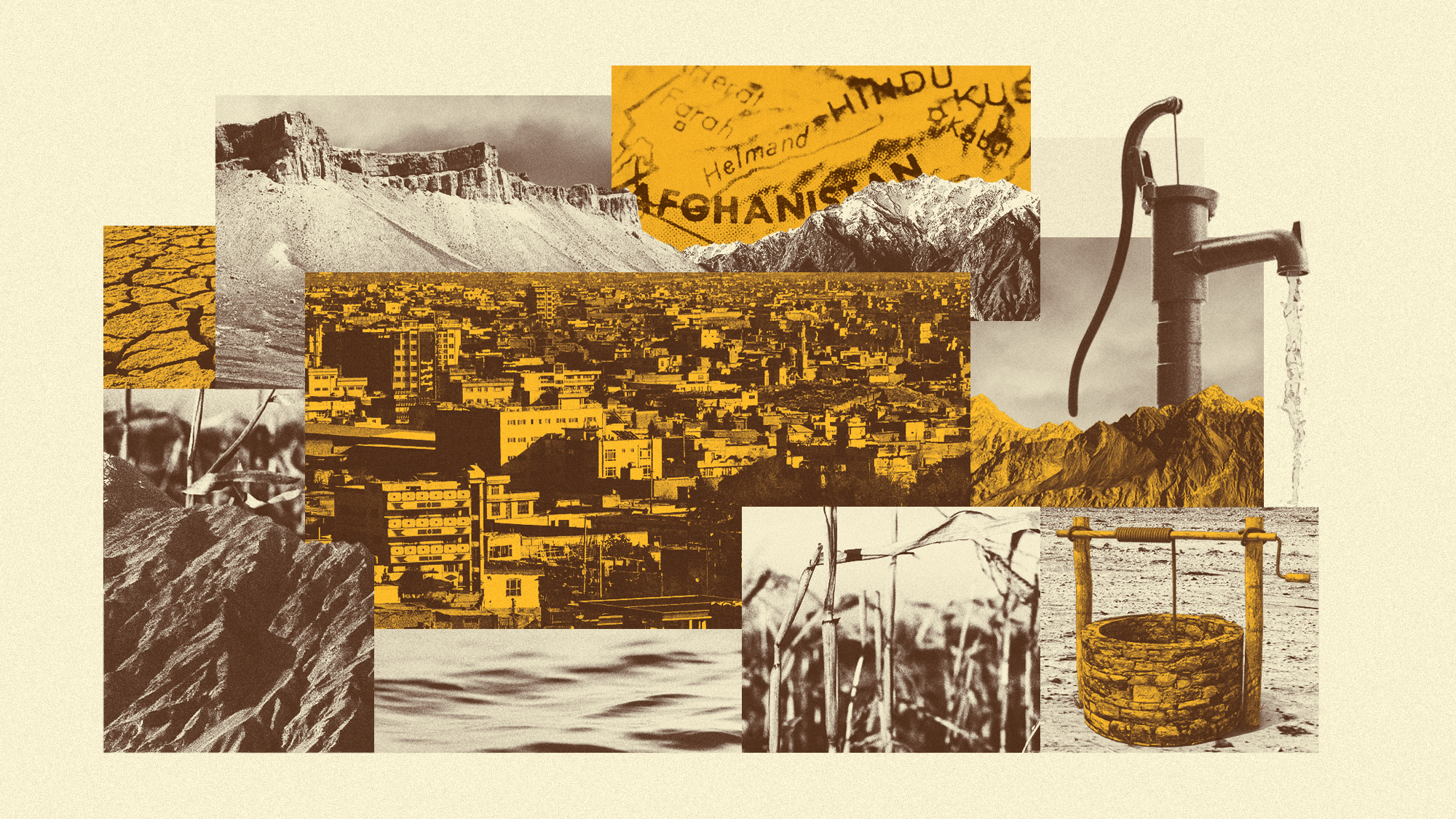Kabul braces for a waterless future
A confluence of manmade and environmental factors makes the Afghan city the first modern capital to risk running out of groundwater


A free daily email with the biggest news stories of the day – and the best features from TheWeek.com
You are now subscribed
Your newsletter sign-up was successful
For the past half-century, the city of Kabul has endured more than its fair share of hardship and tragedy. As Afghanistan's capital works to move past its violent history, a new challenge has emerged to threaten Kabul's future in a way no occupying army or theocratic regime ever could. The city faces a "severe and multi-faceted water crisis" which, if not addressed immediately, "will soon pose an existential threat" to Kabul's six million residents, said a new study by the nonprofit Mercy Corps. If allowed to continue, the crisis will earn Kabul the ignominious distinction of becoming the first major capital in modern history to fully exhaust its subterranean water supply.
How much water does Kabul have?
Kabul's underground aquifers have "plummeted 25-30 meters in the past decade" with usage "exceeding natural recharge by a staggering 44 million cubic meters annually," said Mercy Corps. The "vast majority" of Kabul's subterranean water comes from "melting snow and ice in the Hindu Kush mountains," which feed the city's three main aquifers, with only some 20% of households connected to "piped running water from centralized sources."
At the same time, nearly half the city's boreholes are dry, while the remaining wells are "functioning at only 60% efficiency," the United Nations Office for the Coordination of Humanitarian Affairs said in 2023. According to Mercy Corps, 90% of Kabul residents rely on "water pumped from borewells to supply their daily needs."
The Week
Escape your echo chamber. Get the facts behind the news, plus analysis from multiple perspectives.

Sign up for The Week's Free Newsletters
From our morning news briefing to a weekly Good News Newsletter, get the best of The Week delivered directly to your inbox.
From our morning news briefing to a weekly Good News Newsletter, get the best of The Week delivered directly to your inbox.
Absent immediate action, Kabul could completely exhaust its groundwater supply by the start of the next decade, UNICEF said this past fall. "Rapid urbanization and climate change" are to blame for the looming catastrophe.
How did Kabul get to this point?
While hardly the only city to be facing resource challenges, Kabul's water crisis stems from a unique combination of factors, including climate change, political mismanagement and rapid population growth. Broadly, the water shortages have been "compounded by climate change," said Al Jazeera. Not only has precipitation dropped across the country, but rising temperatures have led to "greater evaporation raising agricultural water consumption." Kabul's climate challenge "reflects a broader trend we're seeing across water-stressed regions globally," said Mohammed Mahmoud, who is the chief executive officer of the Climate and Water Initiative NGO, and the lead for Middle East climate and water policy at the U.N. University's Institute of Water, Environment, and Health, to LiveScience. Reduced and shifting rainfall patterns are "limiting freshwater generation and groundwater recharge, while increasing the frequency and severity of droughts."
Kabul's population explosion has also contributed to the city's growing water scarcity. The city's populace has "grown roughly sixfold over the past 25 years," said The New York Times, but "no decent water management system has been put in place" to address the growing strain from "greenhouses, factories and residential buildings that are mushrooming across the city." Although international donors have "financed multiple dam projects" and plumbing initiatives to help address Kabul's water scarcity, most of those projects "never saw the light of the day or were abruptly stopped after 2021" when the United States withdrew from Afghanistan and returned control to the current Taliban government.
Compounding the crisis further is the state of Kabul's current groundwater reserves. Mercy Corps' research shows some 80% of the city's groundwater is contaminated as a "consequence of widespread pit latrine use and industrial waste pollution," CNN said. Residents "without the means to dig hundreds of meters for water" are then left "at the mercy of private companies or must rely on donations" for reliable access to water. Some of those companies have been "capitalizing on the crisis," The Guardian said, by "extracting large amounts of public groundwater," then reselling to residents at "inflated prices."
A free daily email with the biggest news stories of the day – and the best features from TheWeek.com
Are there any solutions?
Mercy Corps suggests "increased engagement with the private sector" as a potentially "sustainable way forward" for the city in the absence of "significant funding boosts" to directly address the water crisis. The group also suggests that NGOs should focus on regulation, which would have an "immediate impact" by creating a framework to ensure "any actors providing water to the public do so in a safe, efficient and sustainable way." Broader infrastructure work would "go a significant way" toward addressing the situation. But the "largest and most important projects remain plagued by significant funding shortfalls and planning hurdles."
The shuttering of America's USAID program by the Trump administration has been catastrophic for Afghanistan, said CNN. "Only about $8 million of the $264 million required for water and sanitation" has been delivered.
Rafi Schwartz has worked as a politics writer at The Week since 2022, where he covers elections, Congress and the White House. He was previously a contributing writer with Mic focusing largely on politics, a senior writer with Splinter News, a staff writer for Fusion's news lab, and the managing editor of Heeb Magazine, a Jewish life and culture publication. Rafi's work has appeared in Rolling Stone, GOOD and The Forward, among others.
